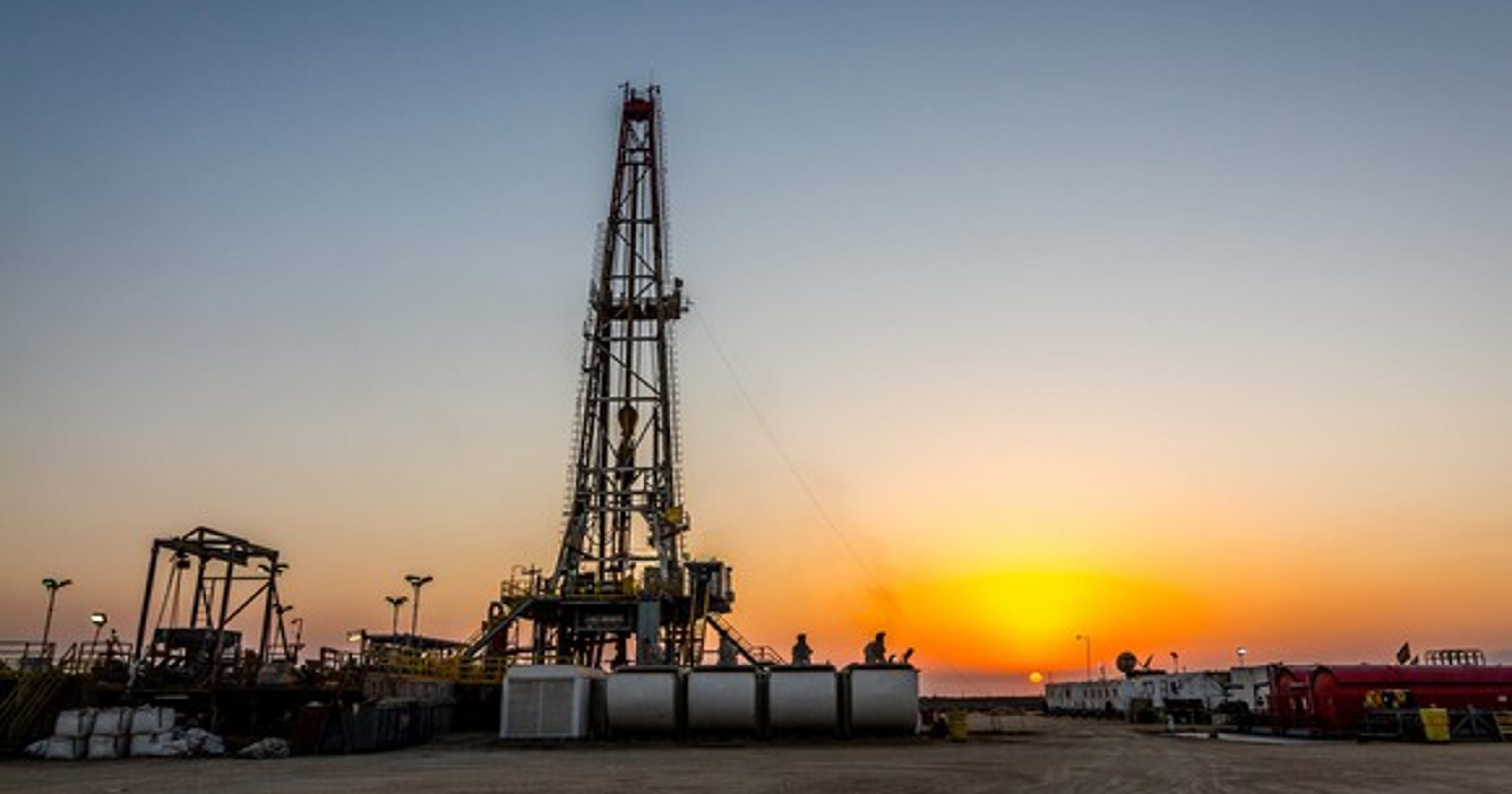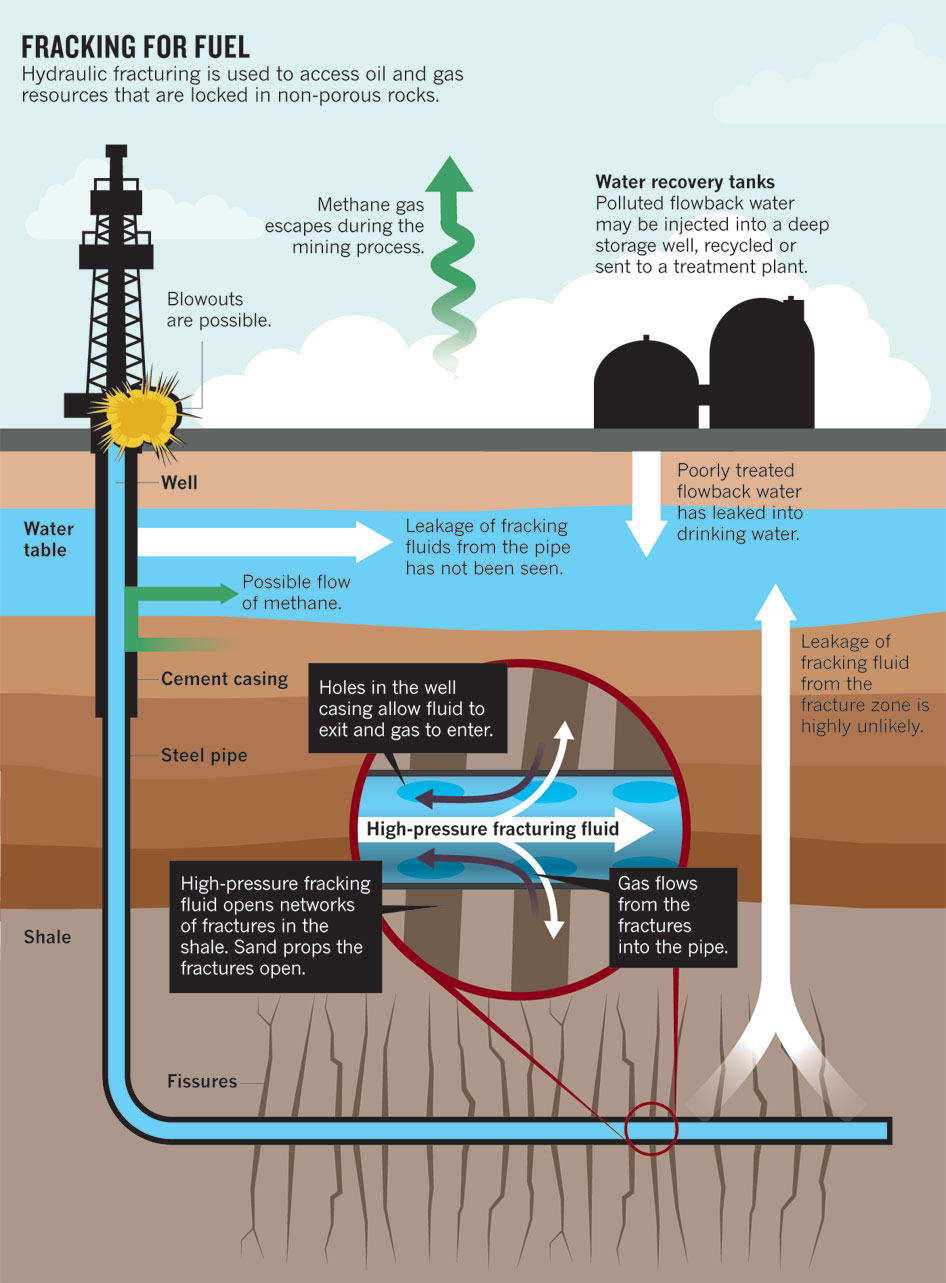
Getty Images
Hydraulic fracturing, better known as fracking, is a technique used to get natural gas and oil out of bedrocks. This is done using drills and “fracking fluid,” which is primarily water, along with sand or mud and other chemicals used as thickening agents. The fluid is shot into the ground and breaks through rock, releasing natural gas that can then be captured and used for fuel. The CHP plant being built by OSU will be using entirely natural gas, at least at the start of its use, but it is being built with the ability to contain hydrogen fuel as well. There is no plan to move to hydrogen fuel besides the university’s goal of being 100% renewable by 2050.

Source: https://serc.carleton.edu/NAGTWorkshops/health/case_studies/hydrofracking_w.html
Fracking has become more and more common in the past couple of decades, and so have the downsides of fracking. There’s significant evidence that fracking can lead to water contamination, possibly to the point of making groundwater (which often used in the US for drinking water, without treatment) flammable. There’s a correlation with increased intensity and frequency of earthquakes. And the methane gas released during the fracking process might actually offset the benefits of natural gas in terms of carbon emissions. Since methane is a more powerful greenhouse gas than carbon dioxide (CO2), even a relatively small amount can make a big difference.

Source: https://www.youtube.com/watch?v=p_m-yxNgb-Y
You can learn more about fracking using these resources:
*Note: be aware of bias when reading these articles. Some are against fracking, some are for it, some are neutral. If the article was written by people with a financial interest (e.g., being an organization of petroleum producers, a natural gas company, a politician, etc.), it’s likely to be biased.
https://en.wikipedia.org/wiki/Hydraulic_fracturing
https://www.bbc.com/news/uk-14432401
https://www.livescience.com/34464-what-is-fracking.html
https://www.nrdc.org/stories/fracking-101
https://www.investopedia.com/ask/answers/011915/what-are-effects-fracking-environment.asp
https://www.api.org/oil-and-natural-gas/energy-primers/hydraulic-fracturing
https://www.greenpeace.org/usa/global-warming/issues/fracking/environmental-impacts-water/
https://environmentamerica.org/sites/environment/files/exp/reports/costs_of_fracking.html
https://www.wilderness.org/articles/article/truth-about-fracking-and-environment
Videos: